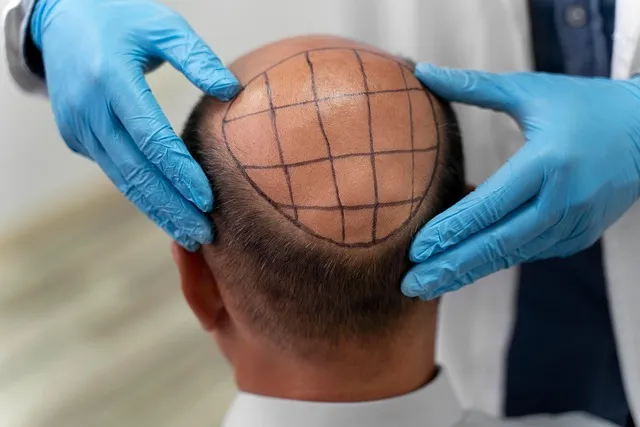If you are going to undergo chemotherapy, hair loss is a side effect you may have to face. It doesn't matter whether you are a male or a female, this side effect is real. Whether it happens or not depends a lot on the type of medication a person receives.
Why does Hair Loss occur during Chemotherapy?
Cancer cells can be life threatening, making it essential to deal with them with a heavy hand. So, strong medications are used to attack the rapidly growing cancer cells. But, these medications also affect other fast growing cells in the human body, such as the ones in your hair roots. It makes the hair fall out from the scalp, eyebrow, armpit, eyelash, pubic and any other body parts.
Communicating to your doctor regarding the medications used will help you understand the chances of hair loss so that you can be prepared. The most relieving aspect about hair loss due to chemotherapy is that, in most cases, hair will resume normal growth a few months after the treatment ends.
Is there a pattern for the Hair Loss?
There is no fixed pattern for hair loss due to chemotherapy treatment. The hair fall may commence 2-3 weeks after the treatment starts. The patient will start losing the hair in clusters, which will come to your attention while you comb, shower, etc. The hair loss will continue to take place until 3-4 weeks after the treatment stops. Your hair will grow back in due time. But, it might differ in texture or colour for sometime before it becomes normal.
Can we prevent hair loss?
There are different treatments prevalent to tackle hair loss, but none of these provide guaranteed results. Hence it is better to be mentally prepared to deal with the situation.
Some of the treatments are:
Scalp hypothermia - This is a method wherein the blood flow to your scalp is limited by using ice packs. As the blood flow gets limited, the powerful drugs released into the circulatory system don't reach the scalp, thus preventing hair fall. But there is an opposing view that states the limited blood flow doesn't allow the drugs to work properly on the scalp. This in turn might increase the chances of cancer recurring in scalp cells. Minoxidil - This is an approved drug to treat hair pattern loss. It may not help to avoid hair loss; rather it will expedite hair regrowth after treatment.
How to Manage Hair Loss?
There are different ways to cope with hair loss that comes as a side effect of chemotherapy. The option is the one that you are most comfortable with. Keep your hair short - Having short hair helps you cope better with hair loss. It would be less distressing to lose short hair. You could even think of shaving your head. Wigs - Get a prescription for 'cranial prosthesis' from your doctor and go to an expert wig maker to create the perfect wig for you. Use scarves or caps - If you are comfortable using scarves or caps to cover up your hair loss, then you should try out ones custom-made for people undergoing chemotherapy.
Join our Cancer group for regular updates.
List of Best Cancer Doctors across India
Best Oncologist in Delhi NCR | Best Oncologist in Mumbai Region | Best Oncologist in Kolkata | Best Oncologist in Hyderabad | Best Oncologist in Chennai |

Reviewed by







